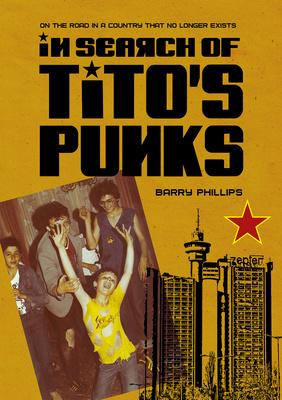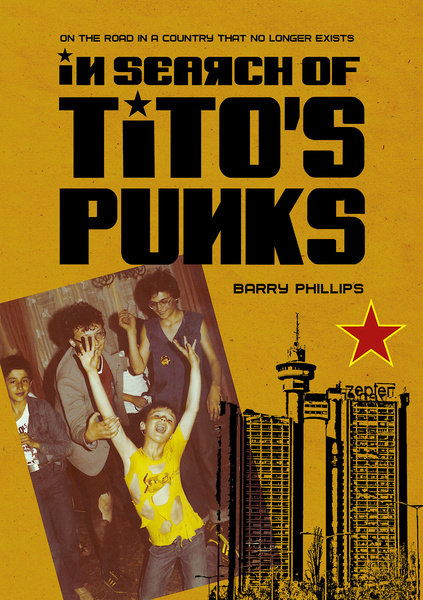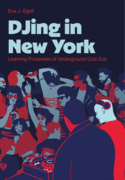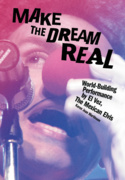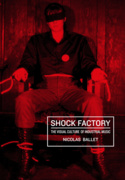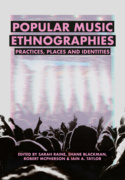In Search of Tito’s Punks (Book)
On the Road in a Country That No Longer Exists
An unvarnished but also affectionate portrait of Yugoslavia in the years before its demise through to the present, seen through the unlikely lens of punk and punk rockers. Part travelogue, part history the book is both, and neither, of those things. A mural and soundtrack of a journey through a time and place which no longer exists. 31 b/w illus.
The prologue is now available for free here
Edition
The book traces the story of how a song recorded in 1981 by a young punk rock band from a cultural backwater on the English-Welsh border, and released on a tiny independent record label, became famous in a Yugoslavia formed in the image of Marshall Tito? Why was it 30 years before the members of the band found out? How did this ‘socialist’ country have one of the most vibrant punk scenes in the world?
Gloucester, England, 1981; multi-racial, teenage street-punk band, Demob, recorded and released what would become their best known and most enduring song, No Room For You. A rasping vocal told the story of the 1979 closure of a short-lived, punk rock venue at a disused motel on the edge of the provincial city. Depending on your mind-set, the lyrics were either a howl of rage at the injustice, a wail at the loss, or a love-song to an era.
More than three decades later, the author – and Demob’s bass player in 1981 – set out to follow the song across a country that no longer exists. On the road he heard the life stories of the heroes of Yugoslavian punk and the punks themselves; from the Tito era, through the disintegration and wars, forced displacements and permanent exiles, to today’s turbulent ‘reconstruction. Who were ’Tito’s punks’ and who are they now?
An unvarnished but also affectionate portrait of Yugoslavia in the years before its demise through to the present, seen through the unlikely lens of punk and punk rockers. Part travelogue, part history the book is both, and neither, of those things. Rather, it is a mural and soundtrack of a journey through a time and place which no longer exists.
The latest addition to the Global Punk series from Intellect.
Barry Phillips is a historian. He is also a former musician and singer-songwriter, former speech writer and policymaker, former ID parade suspect, shelf-stacker and barman.
Foreword
Acknowledgements
Notes on Pronunciation
Prologue: The Play-on Track: Teenage Kicks
One: Scheveningen: Paint It Black
Two: The Hague to Gruška 4
ALEKSANDAR DRAGAŠ: Club Limb, Zagreb
Three: Zagreb: Black Lamb and Grey Falcon
ZDENKO FRANJIĆ: Club 22, Prečko, Zagreb
Four: To Ljubljana: On the Brotherhood and Unity Highway
Five: A Day in Court: Vermeer in Bosnia
ANTE ČIKARA: The Haven, Scheveningen and De Pijp, Amsterdam
Six: Music Is the Art of Time
PERO LOVŠIN: The Fish Market, Ljubljana
Seven: The Ljubljana Punk Rock Taxi Tour
MARIN ROSIĆ: On the Road in Ljubljana
Eight: Return to Zagreb
MATIJA VUICA AND JURE POPOVIĆ: The Bulldog, Central Zagreb
Nine: Zagreb (1977) ... and Tito’s Coming to Town
DARKO RUNDEK: Caffe Bar Albatros, Ljubljanica 4, Zagreb
Ten: The Hague Hilton
Eleven: Istria: Pirates and Punk Rock Heartlands
RUJANA JEGER: Zagreb
Twelve: Pula: Uljanik Calling
SALE VERUDA: Forum Square, Pula
Thirteen: England: Back to the Forest
ROBERT ‘MIFF’ SMITH: Coleford, Gloucestershire, England
Fourteen: To Belgrade: On the Brotherhood and Unity Highway Again
Fifteen: Internacionalnih Brigada
PETAR JANJATOVIĆ: Radost Fina Kuhinjica, Belgrade
Sixteen: Lost in Belgrade Central
BRANKO ROSIĆ: Belgrade café terrace
Seventeen: Kafana Mornar: Belgrade Is Drowning
POGONBGD, TRNJE AND FRIENDS: Kafana Mornar and Studio Mašina 23
Eighteen: Novi Sad, Vojvodina: Words and Bullets
Nineteen: Novi Sad: NATO Bombs and Jew Street Ghosts
STEVAN GOJKOV, VLADIMIR ‘RADULE’ RADUSINOVIĆ AND SAVA SAVIĆ: Central Novi Sad
Twenty: To Kragujevac: On the Brotherhood and Unity Highway Once More
VUJA (SAŠA VUJIĆ): Kragujevac
Twenty One: Return to Belgrade: The House of Flowers
Sleeve Notes: Standing at the Gates of the West: Hitsville Yugo
Timeline: Yugoslavian Punk from 1975 Until Break-Up
(VINKO BARIĆ)
Selected Discography
Index
'It’s a terrific read, equal parts travel memoir, rock’n’roll history, and bittersweet recollection of a country fractured and dismantled, seamlessly integrating past and present, politics and culture, and the alternating voices of the author and a variety of fascinating characters he meets on the way. Musicians and businessmen, artists and thugs, Bosnians, Serbs, Croats, and all the rest, thrown together and then torn apart, each with their own story to tell, by turns hilarious, inspiring, and tragic. Engaging, thoughtful, and shot through with a certain melancholy, much too sharp to be dismissed as mere nostalgia, for a time and place seeming lost forever. In Search of Tito’s Punks is one of the more interesting and original rock books to come along in some time.'
'Barry Phillips has written a very important book here. It is important for understanding Yugo Punk, and has clear relevance [...] to the study of punk generally. More than that, by focusing on lived punk lives rather than on the politics, geopolitics, and the imagined primordial ancient hatreds that are held to define the Balkans, Phillips has made a significant contribution to Yugoslav and Balkan studies.
This is an excellent book, an eye-opener both for those interested in the Balkans, and those interested in punk. And beautifully realised in print, paper, and card by the Punk Scholars Network, who clearly take book production as craft very seriously. Very punky. A must-read.'
'A mosaic of essays and interviews...one that provides the book with an air of accessibility.
The interviews offer interesting insight to the modes of spreading and disseminating punk ideas and music in Yugoslavia (primarily through the records bought in the West, but later on a basis of local social networks) and thus invite a more general reflection about the travel of ideas in a pre-globalized world and its main actors. [...] Phillips’s book can also be read as an attempt to include the history of Yugoslavia in the mental map of western left-wing imagery and as an expression of nostalgia, which is present not only in the narrators’ talks, but in the author’s essayist passages. Indeed, one of the most powerful among them is Phillips’s reminiscence of his meeting with Yugoslav veterans of the Spanish Civil War in 1996 [...] In Search of Tito’s Punks represents a very readable introduction to the topic, enriched by a multidisciplinary and intertextual approach that offers a great number of references to other cultural texts.'
'The book uses an ethnographic method, drawing on a series of meetings and discussions with gatekeepers within the former Yugoslavian punk movement during the Tito era to illustrate the influence of both the song ‘No Room for You’ and punk more generally... the detailed recollections of their social and personal circumstances of living in a country that allowed and encouraged their continued musical activity, both during Tito’s regime and after his death, deliver a powerful message to the reader. Additionally, these candid, in-depth interviews offer insight into how punk musicians are still tackling modern problems by drawing on the past.
In Search of Tito’s Punks will appeal to academics interested in the origins and dissemination of punk beyond the United States and the United Kingdom; the fall of socialist Yugoslavia; and anthropological Memory Studies.'

